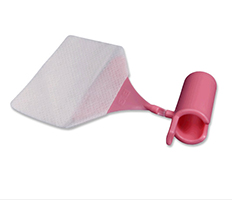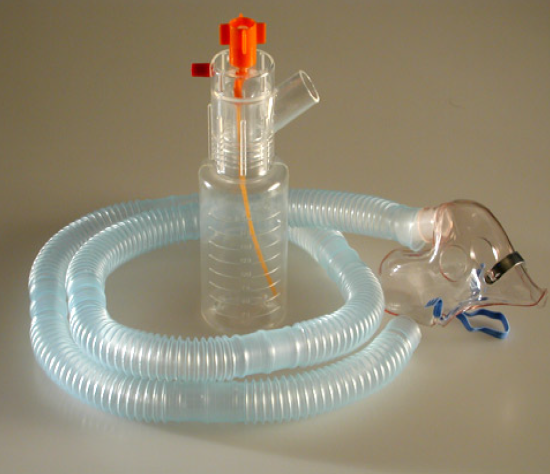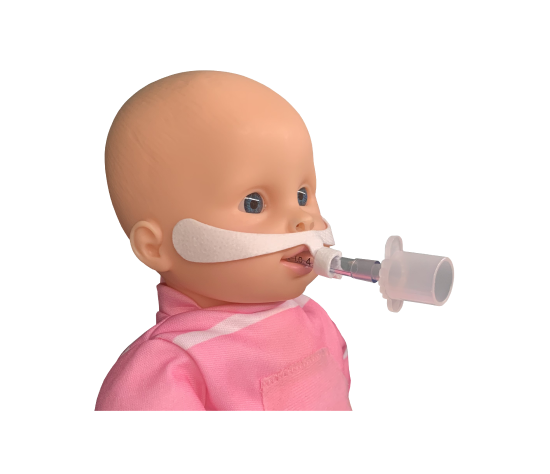Bite blocks are essential tools in both dental and anesthesia procedures. They help maintain a patient’s airway, prevent damage to the teeth, and provide comfort during lengthy procedures. Whether you are a dentist, anesthesiologist, or healthcare provider, understanding how to use bite blocks effectively ensures patient safety and improves overall procedure outcomes.
This blog will discuss the best practices for using bite blocks in dental and anesthesia procedures, their benefits, and how they contribute to a smoother experience for both patients and medical professionals.
What is a Bite Block?
A bite block is a small medical device designed to fit in a patient’s mouth to prevent the teeth from coming together, either during dental procedures or anesthesia administration. In dentistry, bite blocks are used during treatments that require patients to remain still for extended periods, such as root canals, extractions, or other oral surgeries. In anesthesia, bite blocks are used to protect the patient’s teeth and help keep the airway open while the patient is under sedation.
- Material: Bite blocks are typically made from soft, flexible materials like rubber or foam, ensuring they are comfortable for patients while still providing stability.
- Variety: They come in different shapes and sizes to accommodate various patient needs and the specifics of the procedure.
Importance of Using Bite Blocks in Dental Procedures
1. Maintaining Airway Patency
One of the most important roles of bite blocks in dental procedures is to ensure that the patient’s airway remains open. When the jaw is kept in a relaxed position, it helps prevent the tongue from obstructing the airway, especially during lengthy or complicated dental work.
- Prevents Airway Obstruction: By stabilizing the jaw and mouth, the bite block helps ensure the patient can breathe freely throughout the procedure.
- Promotes Safe Sedation: For patients under local anesthesia or sedatives, the bite block aids in preventing any inadvertent blockage of the airway.
2. Protecting Teeth During Procedures
Dental procedures can sometimes result in unintended pressure on the teeth. Bite blocks act as a protective barrier, preventing damage to the teeth from excessive pressure, especially during procedures that involve heavy instruments.
- Prevents Tooth Damage: The block keeps the teeth from grinding or clamping together, which could potentially cause fractures or stress to the dental structure.
- Reduces Muscle Fatigue: Prolonged open mouth situations during dental procedures can cause strain on the jaw muscles. A bite block reduces this strain, promoting comfort for the patient.
Best Practices for Using Bite Blocks in Anesthesia Procedures
1. Ensuring Proper Fit
When using a bite block for anesthesia procedures, proper fit is crucial for both comfort and effectiveness. The device should fit snugly without causing excessive pressure on the teeth or gums. A poor fit can cause discomfort or even lead to injury.
- Customizable Options: Choose bite blocks that can be adjusted to fit the patient’s mouth size and structure. For patients with unusual mouth shapes or dental conditions, customized options may be necessary.
2. Monitoring During Sedation
Patients under anesthesia are often unable to respond to discomfort or airway distress. It’s essential to continuously monitor the patient’s breathing and the positioning of the bite block during the procedure.
- Constant Monitoring: Ensure the bite block remains securely in place throughout the procedure and regularly check the patient’s airway to make sure there are no obstructions.
- Ensure Adequate Spacing: Ensure that the bite block provides enough space for air to flow, particularly if the patient is under deep sedation.
Benefits of Using Bite Blocks in Medical Procedures
1. Improved Patient Safety
Using bite block ensures that the patient’s airway remains unobstructed during procedures, reducing the risk of respiratory issues or accidental aspiration. This is especially important in patients under sedation, where they may not be able to maintain control over their airways.
- Airway Management: By preventing airway collapse, bite blocks offer enhanced safety and reduce the likelihood of respiratory distress.
- Protection During Intubation: In some anesthesia procedures, bite blocks protect the patient’s teeth from injury during intubation or the insertion of breathing tubes.
2. Enhanced Comfort
In long procedures, patients may experience muscle fatigue or discomfort. Bite blocks help to prevent jaw fatigue and allow patients to remain more comfortable during dental work or anesthesia procedures.
- Comfort for Extended Procedures: The bite block helps support the jaw in a relaxed position, preventing strain on the muscles and teeth.
- Minimizes Discomfort from Instruments: With the bite block in place, patients are less likely to experience discomfort from tools pressing against their teeth or gums.
3. Preventing Accidental Damage
In dental procedures, bite blocks protect both the patient and the dental instruments. They prevent the teeth from clenching, reducing the chances of dental damage and injury to the patient or practitioner.
- Protects Dental Instruments: By preventing the patient’s teeth from coming into contact with instruments, bite blocks ensure that dental tools are not damaged during the procedure.
- Avoids Teeth Grinding: For patients who tend to grind their teeth, a bite block helps protect the teeth and ensures proper positioning during treatment.
Frequently Asked Questions
A bite block helps maintain the patient’s airway, protects teeth from pressure, and ensures comfort during dental treatments.
Bite blocks prevent airway obstruction and help stabilize the jaw, ensuring a clear and safe airway during anesthesia procedures.
Choose a bite block that fits comfortably in the patient’s mouth, provides adequate support, and is appropriate for the procedure being performed.
Improve Patient Safety and Comfort with Bite Blocks
Bite blocks are indispensable tools in both dental and anesthesia procedures. They help maintain airway patency, protect the teeth, and ensure patient comfort and safety during lengthy procedures. Whether used in dentistry to prevent tooth damage or in anesthesia to stabilize the jaw and prevent airway obstruction, bite blocks are essential for smooth and successful outcomes.
If you are looking for high-quality bite blocks for dental or anesthesia procedures, B&B Technologies offers a range of reliable products designed to improve patient safety and comfort.
Choose The Right Bite Block Today For Better Patient Care And Effective Procedures.



